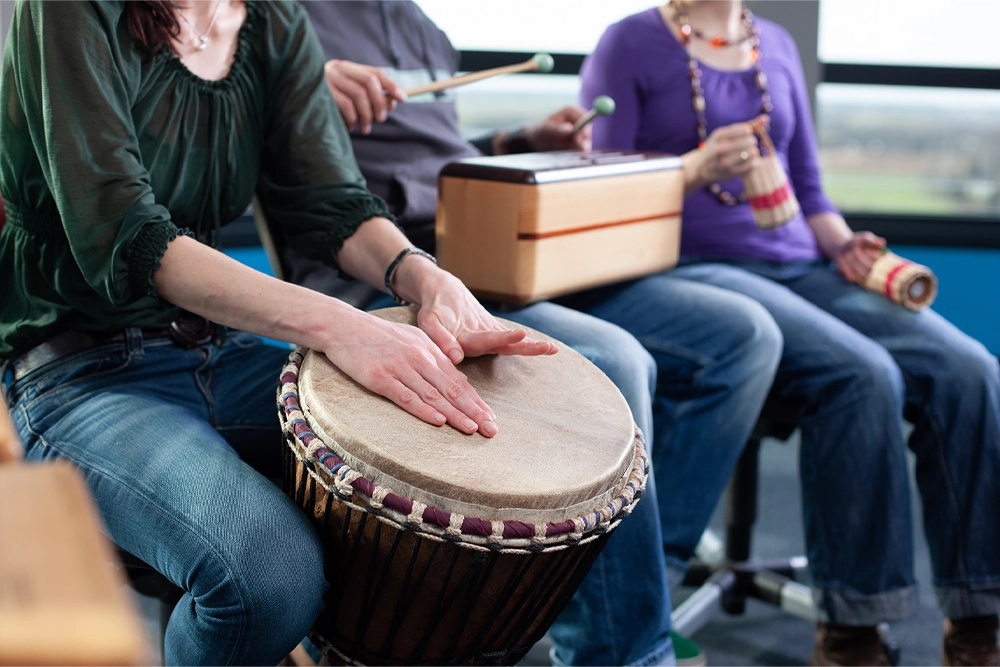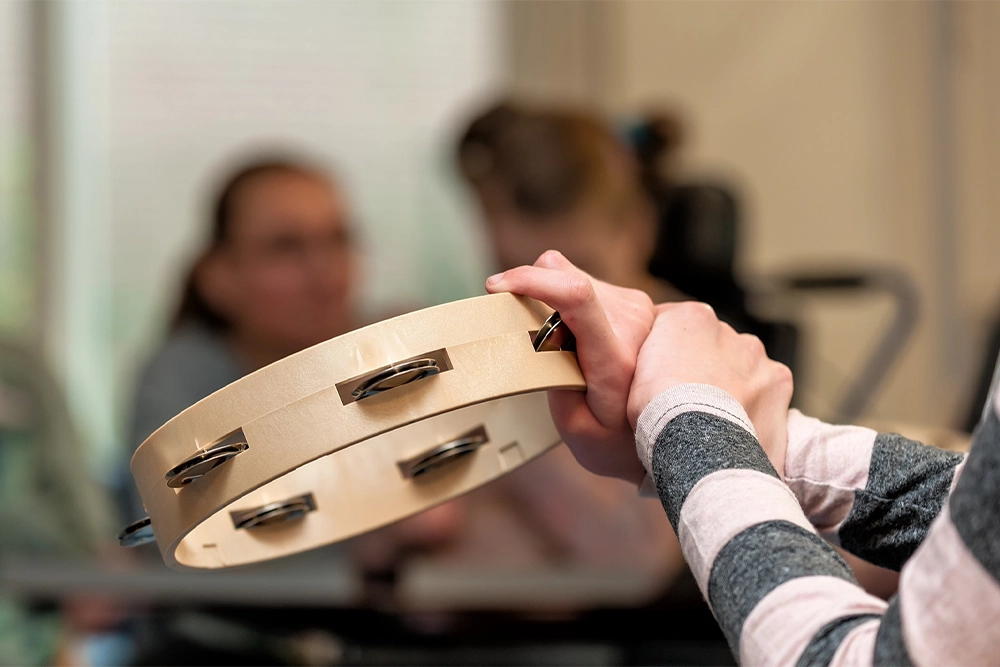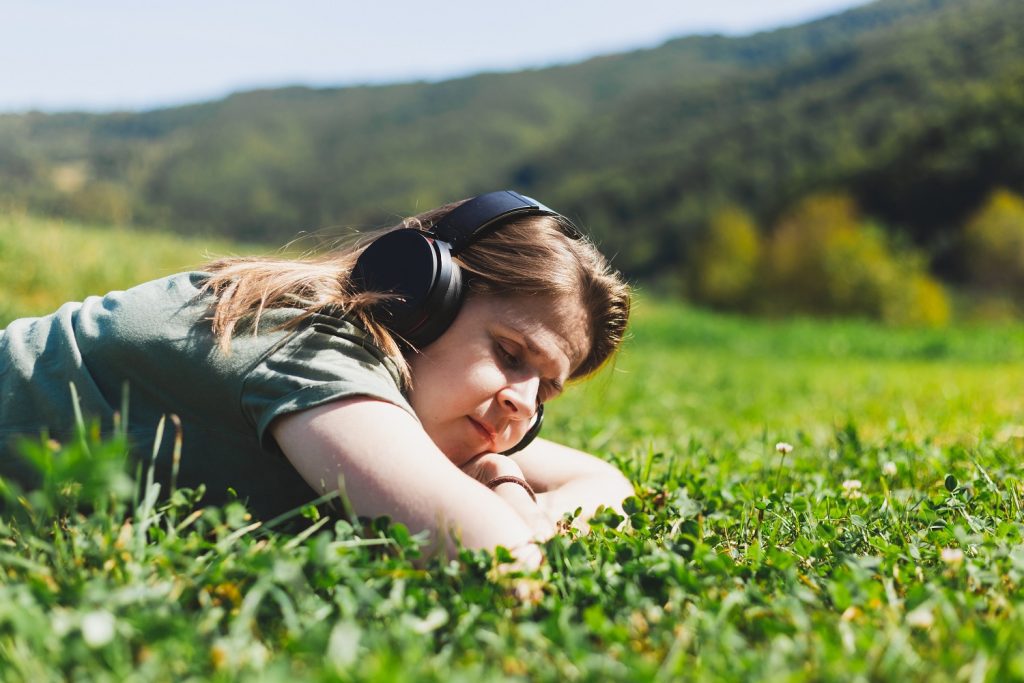Music therapy has changed the world. It has helped children with anxiety, the elderly with dementia and premature babies all live healthy lives. Decades ago, scientists made another ground-breaking discovery; music therapy for addiction treatment.
Scientific evidence backs many studies that confirm the success of this therapeutic practice. But what is music therapy, and how does it help with addiction treatment?
Understanding Music Therapy
Music therapy is the use of musical interventions to achieve a particular therapeutic goal. When performed by a professional, research has shown that it can provide psychological, mental and physical benefits to patients. The therapist has to design the intervention on the patient’s needs.
Music therapy for addiction treatment is just one way this practice is used in therapeutic settings. The best part is that patients don’t need to be musically inclined to enjoy the benefits. However, responsiveness is essential. This makes its applications broad and inclusive of virtually all types of addiction.
How Can Music Therapy Help Addicts?
Music therapy is generally used as a complementary tool for addiction treatment. Therefore, the professional therapist usually has to work with a team to provide an effective treatment plan for the patient.
Here are some benefits of music therapy for addiction recovery:
Helps patients recognize and process their emotions
This is one of the top healing qualities of music therapy for addiction recovery. Addicts tend to develop negative coping mechanisms, like lying and social distancing. Although they know that these behaviours are not healthy, most can’t help but continue in them. Enter music therapy.
Music therapy helps addicts process these emotions healthily. Hence, they can easily break their negative patterns when they listen and discuss music.
Furthermore, most addicts go to their addiction to feel some emotions. However, therapeutic music can help facilitate these emotions, thereby replacing the need for the substance.
Reduces stress levels and facilitates relaxation
Stress is a normal response to pressure and demands. However, a person’s inability to manage and cope with it is one of the top reasons people become addicts. It is also one of the leading factors of relapse among recovering addicts.
What music therapy does is to provide a calming and relaxing stimulus for patients when they feel stressed. However, it can also help patients recognize their bodily responses to stress, which is the first step in coping with them. This way, they won’t have to go to their quick fix for solace.

Different people consider various music calming. Therefore, music therapy for addiction treatment can only work when it is unique and relaxing for the patient.
As we mentioned earlier, getting involved in music therapy doesn’t require the patient to be a musician. Sometimes, engaging in discussion groups can do the trick for most people. However, learning to play a musical instrument in musical therapy can be more beneficial. It helps in relieving stress and creating a leisure skill to release tension.
Develops cognitive functions
Generally, addicts have trouble remembering, learning new things, concentrating for long periods or making life decisions. Sadly, many drugs make abstinence difficult by producing cognition-related withdrawal symptoms. This is another area music therapy can prove useful in addiction treatment.
Recent reports show that listening and discussing music can help develop certain cognitive functions among addicts. How? By stimulating the left and right hemisphere of the brain.
Boosts your self-esteem
Research has shown a distinct connection between addiction and low self-esteem. Many people who are dealing with low self-esteem also turn to substance abuse as their quick fix. Music therapy can help patients in both these situations.
Creating therapeutic music gives patients something to be proud of, which increases their self-worth in the long run. Also, this therapeutic practice can make people feel connected to others. Studies also show that music therapy can help people express their personalities, which later leads to increased self-esteem.
Related article: Can Experiential Therapy Help in Addiction Recovery?
What Forms does Music Therapy take in Addiction Treatment?
There are several forms of music therapy for addiction treatment. No form is better than the other, and they can all be used collectively.
Creating music
In music therapy, patients can create music by composing new pieces or improvising. The composition is a therapeutic healing practice because it allows a patient to verbalize their feelings. Also, it permits you to use musical elements to express emotions. This is particularly beneficial to patients who have trouble communicating.
On the other hand, improvisation in music therapy is a more spontaneous option. One common way this is done is to think of a sound and add a rhythm, different pitches or tones to it. Improvising on the drums is one of the most common ways of creating music in a therapeutic setting.
Meditating on a sound or song
A less engaging activity used in medical therapy for addiction recovery is to relax to the tune. Although this technique can be difficult at first, it is vital in calming and de-stressing a patient.
Performing music
This is another active activity that recovering addicts used in music therapy. Unlike for entertainment, the song doesn’t need to be performed in front of a crowd.
Indeed, performing to oneself can help to bring out more emotions and feelings. Performing music usually goes hand in glove with playing a musical instrument or dancing.
Playing musical games
Games are fun and a great way to distract addicts from their addiction. Luckily, there are several games in music therapy for addiction treatment. Many therapists use this form of music therapy to break the ice among a group of recovering addicts.
Limitations of The Use of Music Therapy
While music therapy helps recovering addicts, it is still limited in a few ways:
When a patient suffers from musical anhedonia
About 3 to 5% of the world’s population suffers from musical anhedonia. For addicts that fall into the group, music therapy can have negative effects.
When a form of music is associated with the addict’s past
Many addicts that abuse alcohol and drugs listen to music when taking these substances. If their brains have connected that piece of music to substance abuse, then music therapy can be detrimental to their recovery.
When music therapy results in aggression or negative emotions
This usually occurs when a therapist uses a wrong form of music for a recovering addict.
When music therapy is done by an amateur:
Only a professional that understands a patient can bring about the benefits of music therapy described above.
In conclusion
Music therapy has numerous applications, and its benefits have made more people use music therapy for addiction treatment. If you find yourself slipping into any form of addiction, then check out our music therapy services that promise to help you through this difficult time.
Here at Addiction Rehab, we can combine music therapy with other holistic treatment techniques. Call 1-844-740-4357 to get started today!
Related article: How is Psychotherapy Used for Addiction Treatment?










